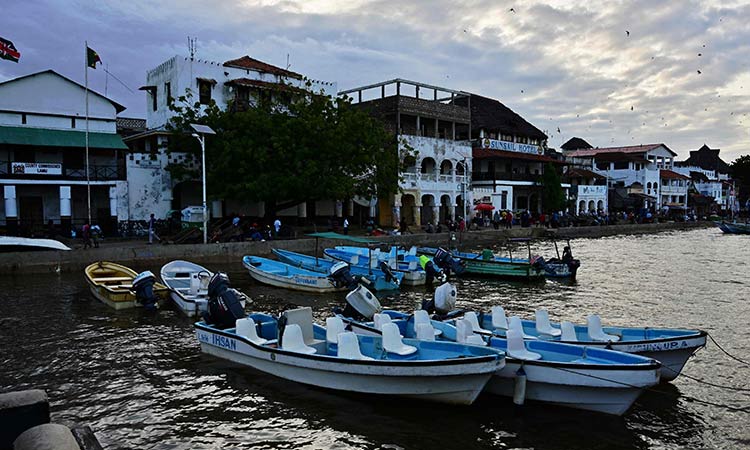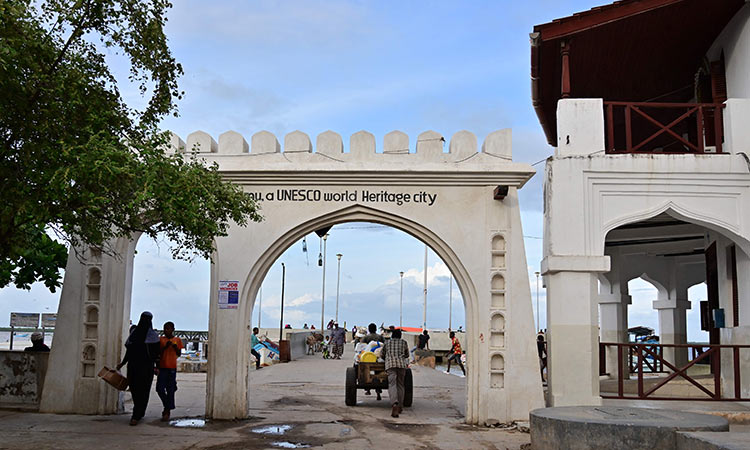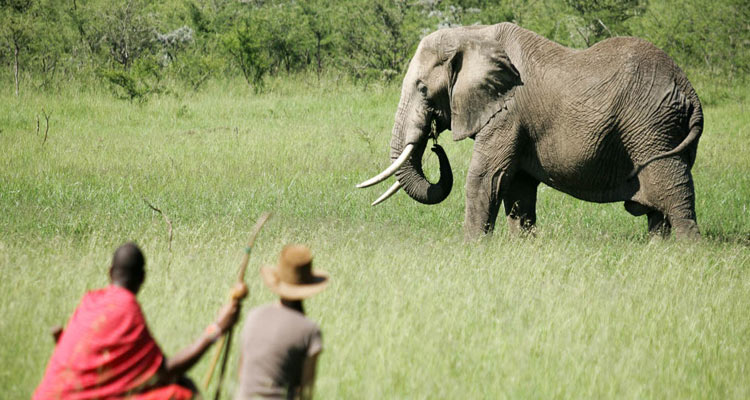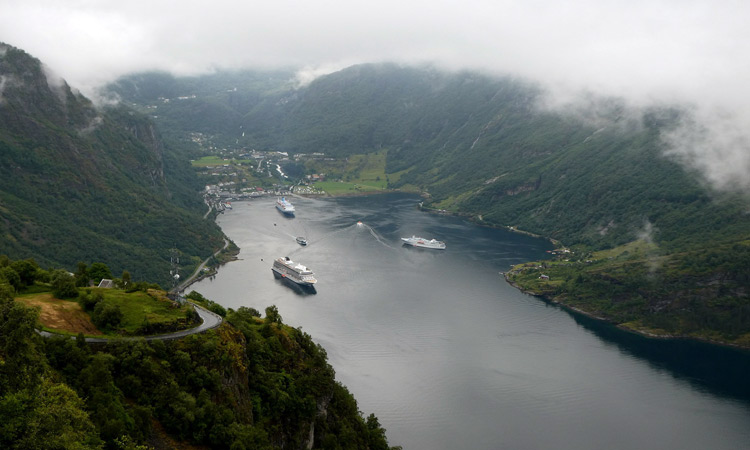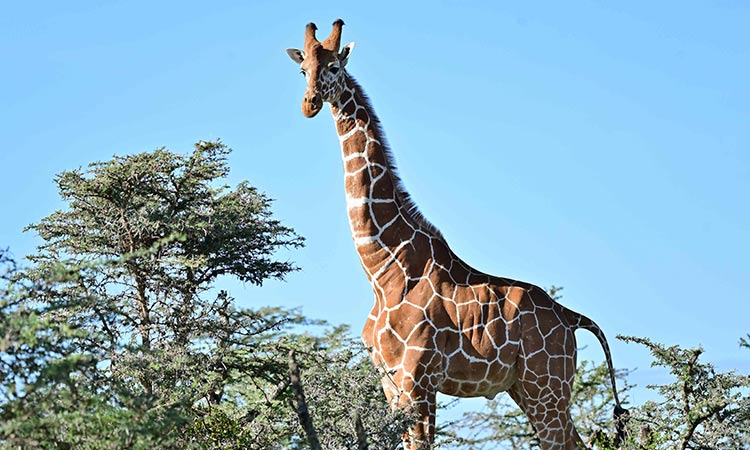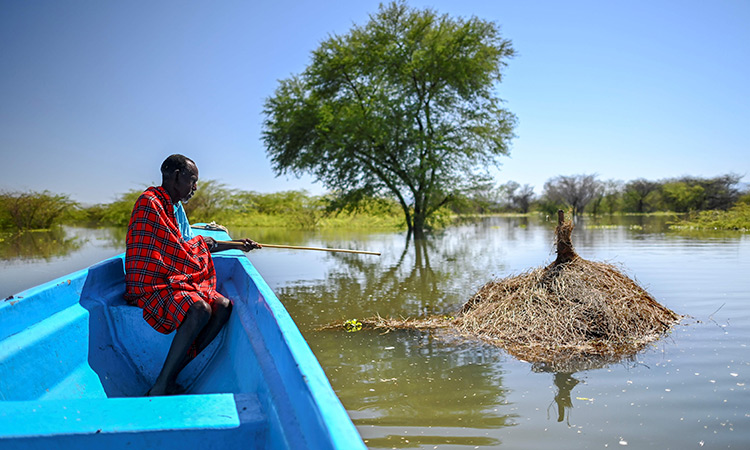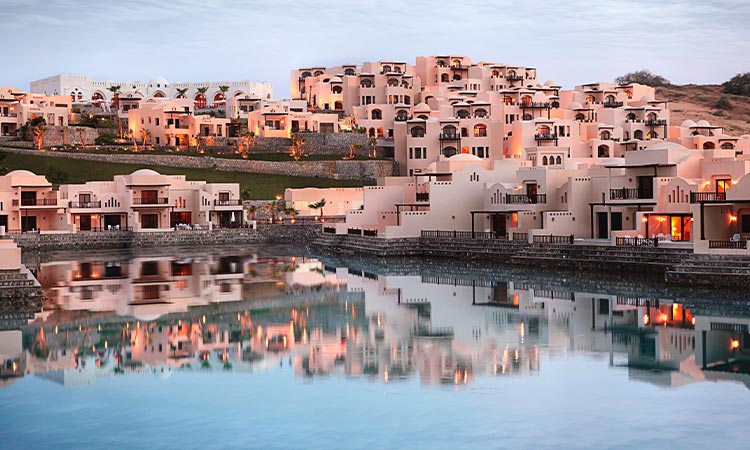Planned coal plant blackens the mood in Kenya's idyllic Lamu
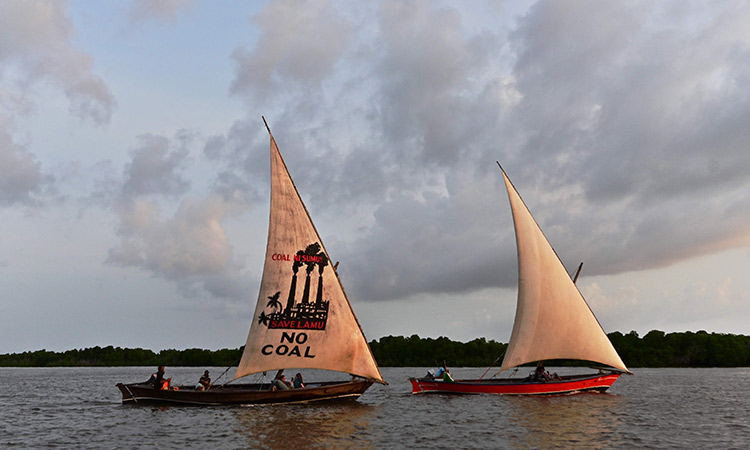
A sightseeing dhow, transporting tourists, with a sail reading "no coal" at Lamu's resort town. Tony Karumba/AFP
In the Lamu archipelago, fishermen ply the channels between lush mangrove forests while life in an ancient Swahili town idles at the pace of the donkeys and boats which are the main means of transport.
Life has changed little over the centuries in this part of Kenya's north coast, however residents fear their pristine environment will soon be blighted by a coal-fired power station spewing noxious gases.
"I think it is going to be terrible, it is going to destroy a lot of the environment here," says Thabit Omar Mohamed, 29, as he unwinds his fishing line from a block of wood, skewers a piece of shrimp on the hook, and tosses it into the water.
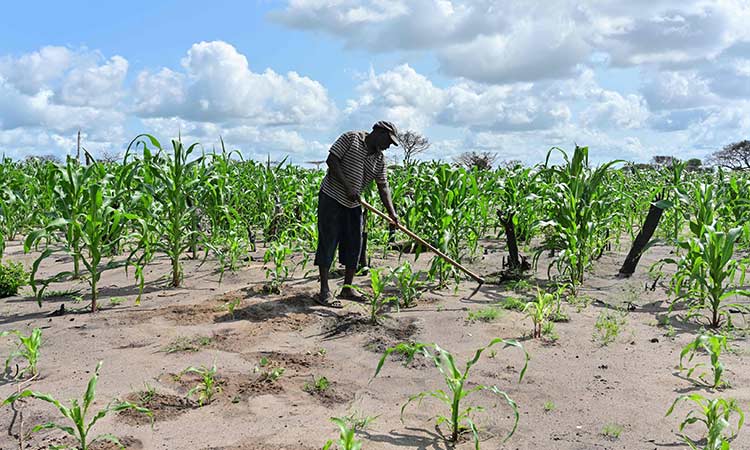
A farmer weeding his corn crop in Kwasasi, about 20 kilometres (13 miles) from Lamu town.
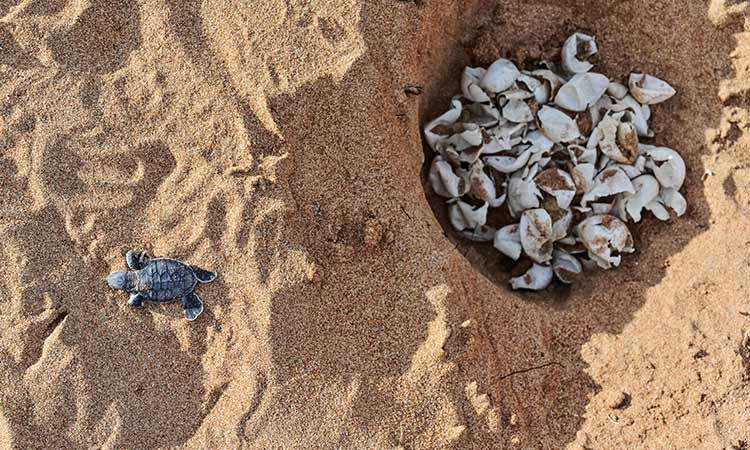
A Green turtle hatchling crawls next to a nest at Manda island.
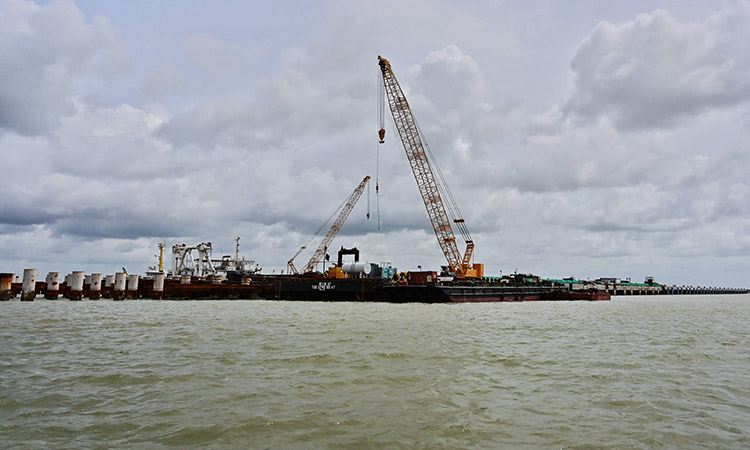
Ongoing construction of a port near the resort town of Lamu, a UNESCO world heritage site that is the oldest Swahili settlement in Africa
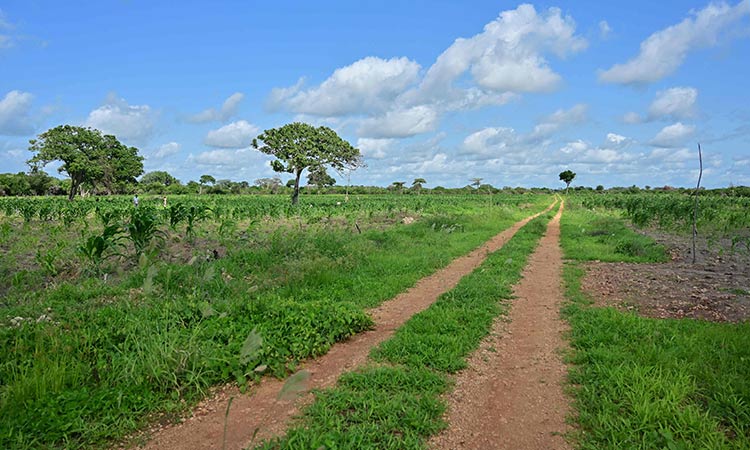
A road leading to the proposed site of a coal mine cuts across fields used by locals for agriculture at Kwasasi.
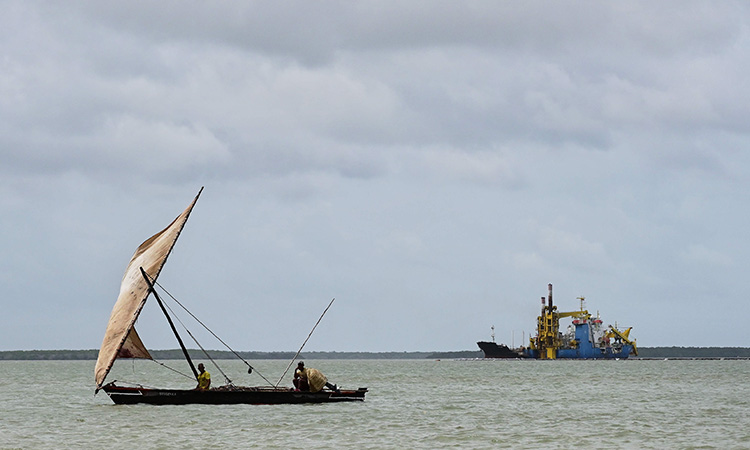
A fishing dhow sailing past a ship used for dredging the ocean floor close to the construction site of a port near the resort town of Lamu.
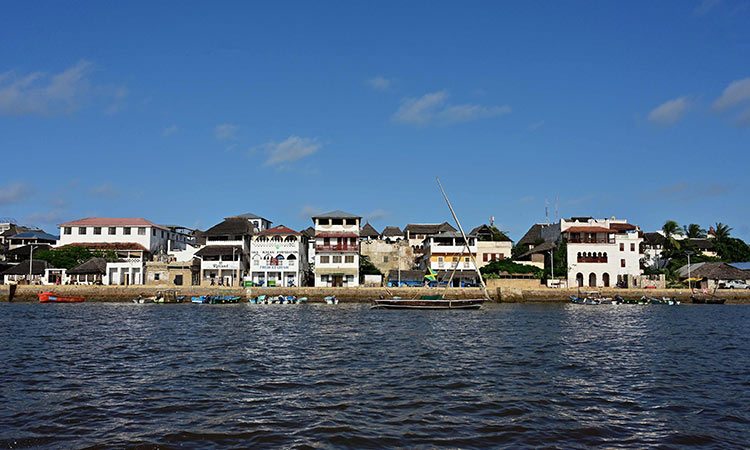
A general view of Lamu's resort town, UNESCO world heritage site that is the oldest Swahili settlement in Africa.
"We believe so many people are going to have problems with their health like cancer, disease," he said.
Kenya's government is planning to build a 981 megawatt coal plant in Kwasasi, about 20 kilometres (13 miles) from Lamu town, a UNESCO world heritage site that is the oldest Swahili settlement in Africa.
The natural beauty of the archipelago includes wide, endless beaches and waters rich in coral and marine life including five species of threatened turtles.
Tourism and fishing are the main sources of income, and the former is only now recovering eight years after a British couple was kidnapped on an island north of Lamu.
If the coal plant is built, tourists "won't come to Lamu. It will be like a few years back," bemoans Mohamed's uncle Ali Sultan, who is out fishing with him.
Heritage in danger
The Kenyan government argues that the power plant is essential to drive economic growth, pointing to the use of coal by "highly developed" countries.
Tour boats are moored next to a getty at Kenya's resort town of Lamu. Tony Karumba/AFP
However critics are baffled by a decision to turn to coal at a time when much of the world is doing the opposite and investing in increasingly cheaper renewable energies.
"We want development in Lamu but a coal power plant is not what we are asking for," said Khadija Shekuwe Famau of Save Lamu, a community group contesting the plant's construction.
UNESCO last week called for a halt to the plant's development ahead of its meeting in Azerbaijan in July, raising the possibility of the site being added to the list of World Heritage in Danger in 2020.
Costly error
The bulk of the $2 billion project is being financed by China and it will be developed by Amu Power, a joint venture between a Kenyan firm and Oman's Gulf Energy. Construction will be carried out by China Power Global.
The coal plant is part of a mega-project which includes the construction of a port in Lamu, as well as highways and oil pipelines linked to landlocked South Sudan and Ethiopia.
Residents go about their daily routines near an archway announcing Kenya's resort town of Lamu. Tony Karumba/AFP
The project has already had a severe impact on the environment, say Sultan and Mohamed, with dredging covering a key coral reef with silt and devastating a popular fishing spot.
In 2018 a court ordered the government to pay more than 4,500 fishermen compensation of $18 million, a decision now under appeal.
The government's own 2017-2037 power development plan warns that if moderate growth continues as it has, the plant will be "grossly underutilised".
However Amu Power's chief operating officer Cyrus Kirima denies these concerns, insisting the electricity generated will be a fixed 7.8 US cents per kilowatt.
"I think there is no point of getting scared by the coal plant, technology has evolved," he said.
But most residents are not convinced.
"LAPSSET, it has a lot of impact, but at least it is understandable. For the coal, there is no way you can understand it," said Famau.
Agence France-Presse
